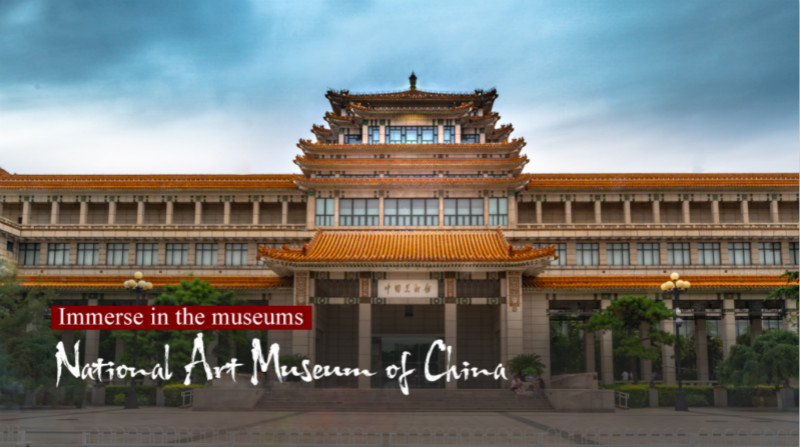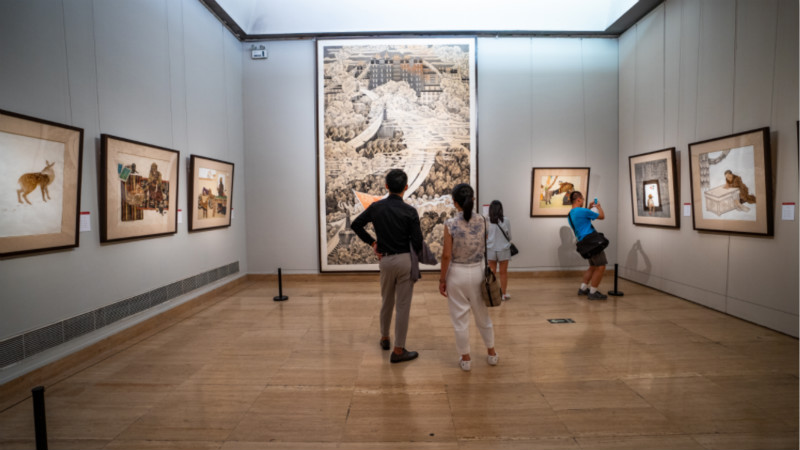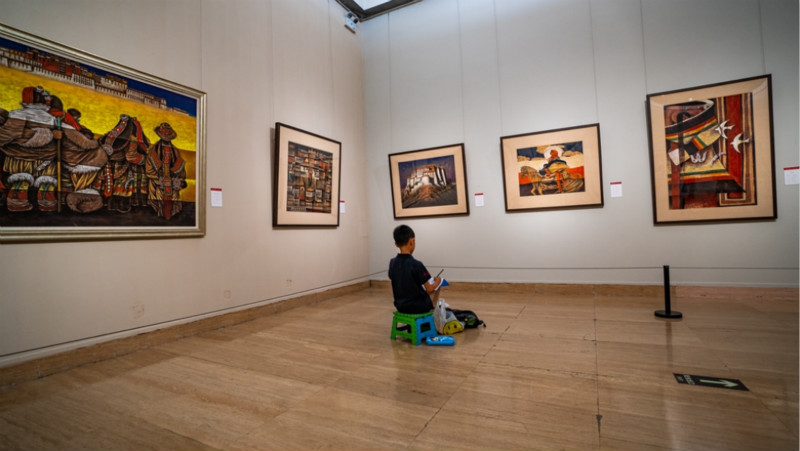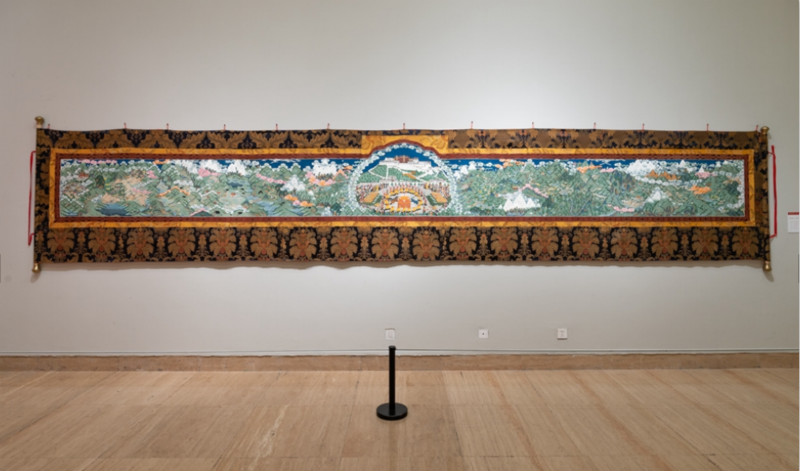
Inside Beijing’s National Art Museum
More than 50 paintings by 13 artists from Tibet were on display in the latest exhibition at the National Art Museum of China (NAMOC) in Beijing.
Tibetan heavy-color painting is a new kind of painting formed since the 1980s. It combined the techniques of traditional Tibetan thangka, mural painting, and Han traditional Chinese realistic painting, and borrows some Western painting elements.
It has become a new style of Tibetan local modern art, realizing the content transformation from “religious-based” to “daily life-based.”
NAMOC, constructed in 1962, is one of the largest art museums in China. The main building, roofed with yellow glazed tiles and surrounded by corridors and pavilions, features the styles of ancient Chinese attics and traditional architecture.
It is a palace of fine arts in China and also a public cultural service platform, including exhibition, collection, art research, international exchange, restoration of artworks and creative industries.
Besides the “Tibetan heavy-color painting exhibition”, the museum houses more than 110,000 pieces of various collections, most of which are representative works of different periods from ancient times until today. Collections also include some ancient paintings and calligraphy works, foreign artistic works as well as plentiful folk artworks.
“Tibet is a magical place and a place full of beauty. We can feel the inspiration in nature from these works,” said Wu Weishan, curator of NAMOC on the opening ceremony of the “Tibetan heavy-color painting exhibition.”
“The National Art Museum of China displays the creation of artists from various ethnic minorities of China and it is hoped that more Tibetan artists will send their works to us for exhibition,” Wu said.
The exhibition ended on August 25.
Source: CGTN Update: August 28, 2019















